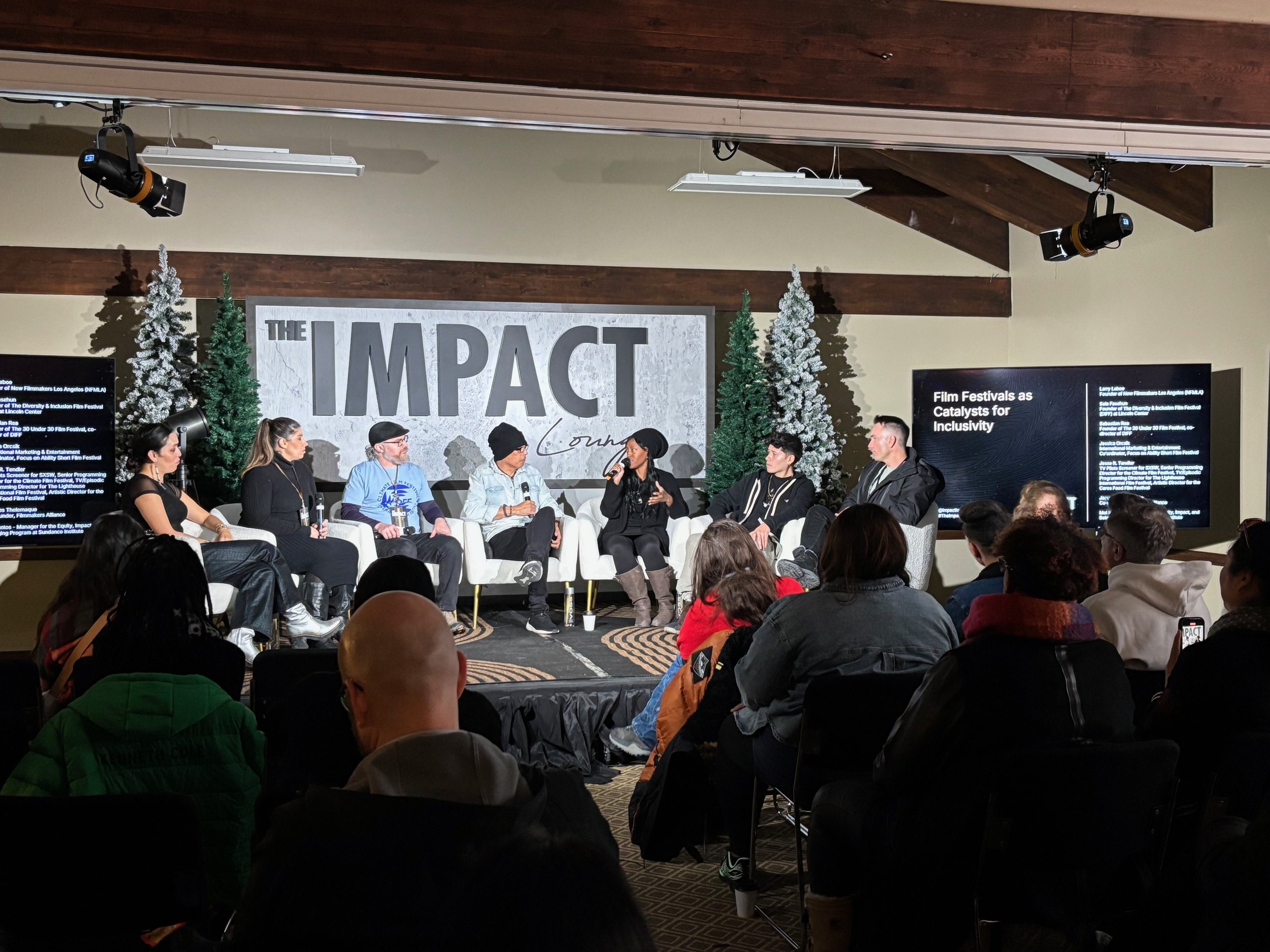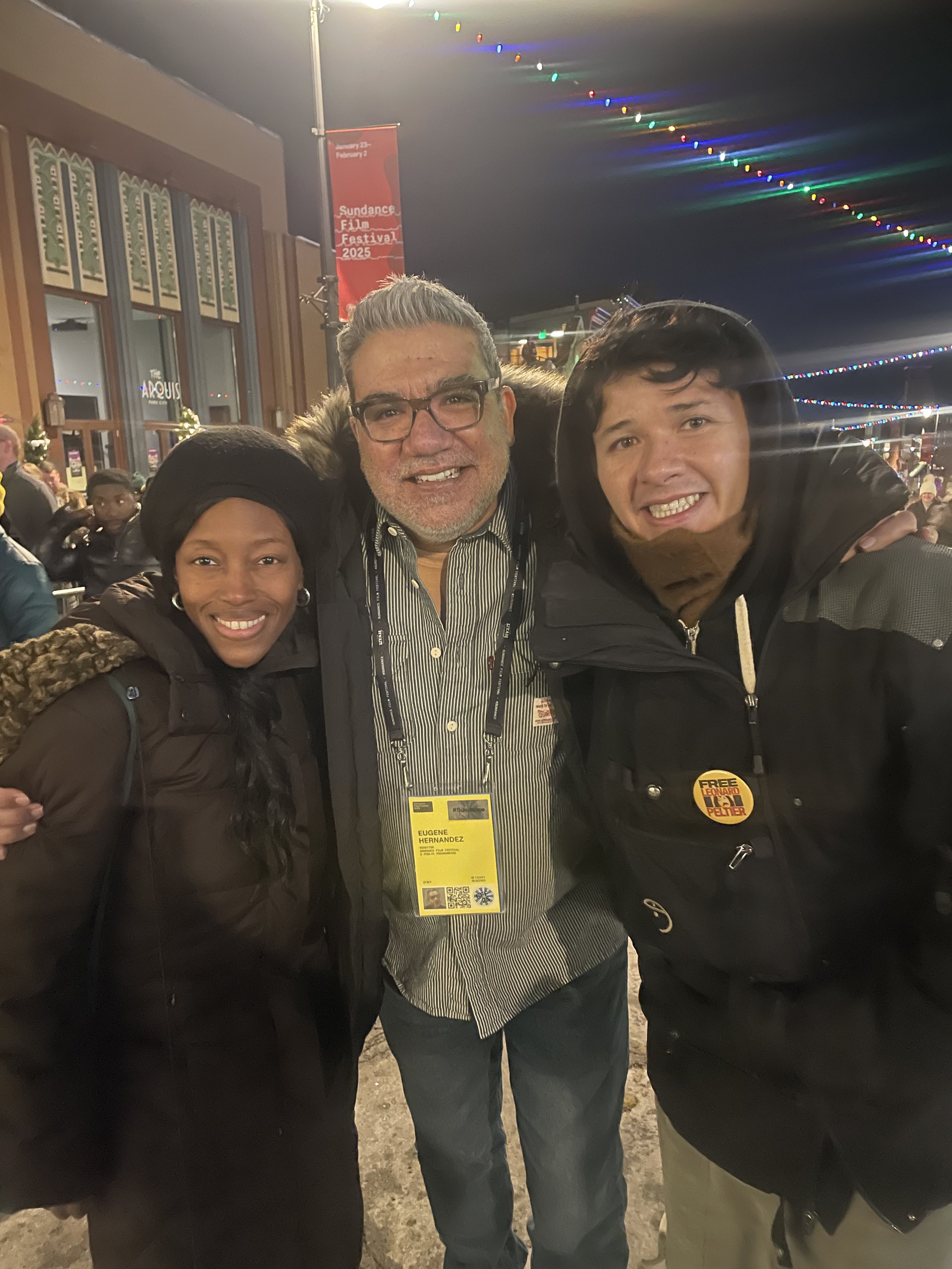Accessibility Services
Making Films and Events Inclusive, One Production At A Time
With over 25 years of lived experience with epilepsy and a background in film production, Caroline helps productions and film festivals create inclusive, welcoming spaces—for both audiences, crew, and staff
-
This applies to individual feature films, episodic projects, or an entire slate of accepted films at any film festival.
Caroline conducts a thorough review of each film to identify necessary trigger warnings, including but not limited to photosensitivity, sexual assault, suicide, racial slurs, graphic violence, and other potentially distressing content. When a warning is required, she develops precise, respectful language for filmmakers and festivals to use. This language is published on each film’s or episodic page of the festival website, ensuring that audiences are appropriately informed before attending a screening.
This is a value-added service for filmmakers, as they are now aware that their film requires a trigger warning and are provided with the proper language necessary for future screenings at film festivals or for distribution.
This also enables film festivals to provide appropriate trigger warnings online for relevant films, post signage at the theater, and make announcements before the screening. This takes away any liability a film festival may have on the back end or a potential bad review because an attendee wasn’t “properly warned of (X) trigger” in a film.
For individual filmmakers, this service can be conducted remotely via a private link to a project. For film festivals, I would require access to the festival’s FilmFreeway account to screen the accepted films.
This service can be done remotely.
-
This service applies to events, film festivals, and panels.
Caroline delivers engaging, actionable sessions that guide organizations in creating events that are fully accessible and inclusive. From accessible venue planning and communication access to designing for mobility, sensory, and neurodiverse needs, she provides practical strategies and real-world examples that go beyond compliance. Work with Caroline to transform your next event into an experience that is welcoming, thoughtful, and truly impactful for every attendee.
How this process works:
Caroline will meet with the decision makers of events, film festivals, or panels to discuss how they can make their organizations more accessible on-site. This involves a deep dive into the venue that has been chosen, what type of entrances/exits that venue has, if the stage have accessible access, coordinating with the photographers on not using flash during the event (and it is possible to still get great photos without it), working with the volunteer coordinator on educating volunteers in case someone needs ADA assistance, ensuring are there closed captioning devices or ASL interpreters available upon request, and educating the venue itself on what they can do to better their space for future events, film festivals, and panels.
This service can be done remotely or in person (if the event or festival is based in New York City).
-
This service applies to events, film festivals, and panels.
Looking to make your events truly inclusive and accessible? As an experienced accessibility coordinator and educator, Caroline can offer tailored presentations that equip your team with the knowledge and tools to create events or film festivals that welcome everyone. She can speak to audiences on how to make spaces more accessible for everyone.
Caroline also provides workshops for filmmakers on how to make their sets more accessible and inclusive.
This service can be done remotely or in person (if the event or festival is based in New York City).
All photos below were taken without flash photography at the Sundance Film Festival, as part of the Diversity and Inclusion Film Festival slate of events at the United Airlines Lounge and Impact Lounge (2025)
Mark Brystowski
Associate Director of the Diversity and Inclusion Film Festival - Senior Financial Analyst - NBC Universal
“Caroline was an incredible asset to our festival, both as a resource for our programming as well as a proactive advocate for our guests. Professional and prepared, she went above and beyond to help us achieve and indeed exceed our accessibility goals.”
All photos below were taken without flash photography at the Climate Film Festival in New York City (2024)
To give some insight as to what an Accessibility Consultation entails, please see a breakdown of the process below:
Events and Panels
An initial Zoom meeting with the event, film festival, or panel “team” is needed to establish contact and discuss the consultation requirements. This meeting can occur in person if the event, film festival, or panel is based in New York.
After the introductory call, the client will assess the event or panel (duration, number of attendees, number of photographers on staff, venue layout, point person on site, etc.) and send a summary to me.
A Zoom meeting with the “team” will take place to review any specific questions.
Once the call is complete, I will send a list of action items for the event staff to make their event more accessible (including signage suggestions, brief training with photographers, etc.)
Any additional questions will be answered via Zoom, as some things are lost in translation via email.
Film Festivals
An initial Zoom meeting with the event, film festival, or panel “team” is needed to establish contact and discuss the consultation requirements. This meeting can occur in person if the event, film festival, or panel is based in New York.
.
The “team” will provide access to the accepted episodic projects, short films, and feature films via FilmFreeway. While this type of access is usually given to screeners and programmers, I would only be using it to watch the films and assess whether they need trigger warnings or not.
I will pre-screen each project individually, check off the films that do not have photosensitivity, sexual assault, suicide, racial slurs, or other trigger warnings, and note the ones that do have problems within a Google Sheet. If requested, I can also note the time code of the triggering scene(s).
Once the document is complete, I send it to the film festival contact and recommend the cautionary measures that should be taken for the films that require trigger warnings. This includes suggestions for warnings on the website for the specific short film block, episodic and feature film screenings with triggering, and verbiage on the individual episodic/film landing pages. Not to mention signs for the theater to post for those particular projects, volunteer training on how to answer if someone has a question (ex: if the event has a Q&A after a screening or if there is a panel discussion, will there be photographers with flashes in attendance), and how to take care of someone if they have a seizure.
A final Zoom/in-person meeting to answer any questions and ensure the proper steps are implemented. If it is a New York-based film festival, a final walkthrough prior to the festival can be arranged.
Ultimately, these consultations mitigate the risk that film festivals and events face by not preparing for such scenarios. Especially as accessibility in venues and trigger warnings in film festivals is finally being considered, they should have had them all along.
If you are interested in speaking about my Accessibility Services, please email me at:
carolineparkerboyd@gmail.com


























